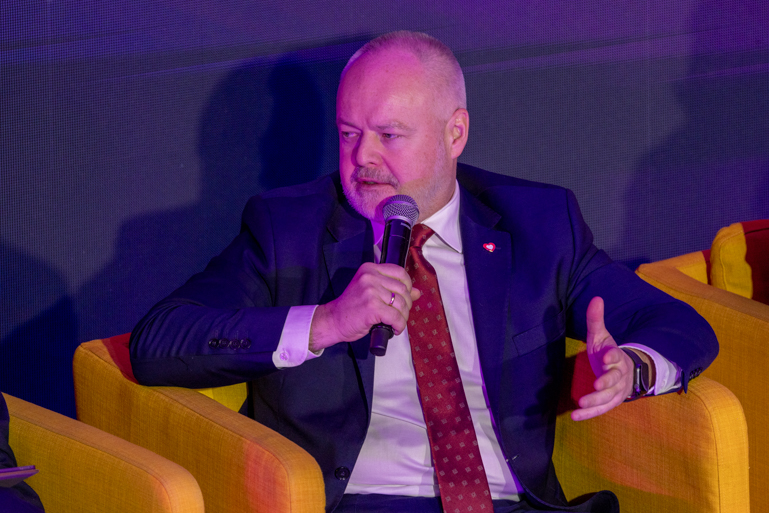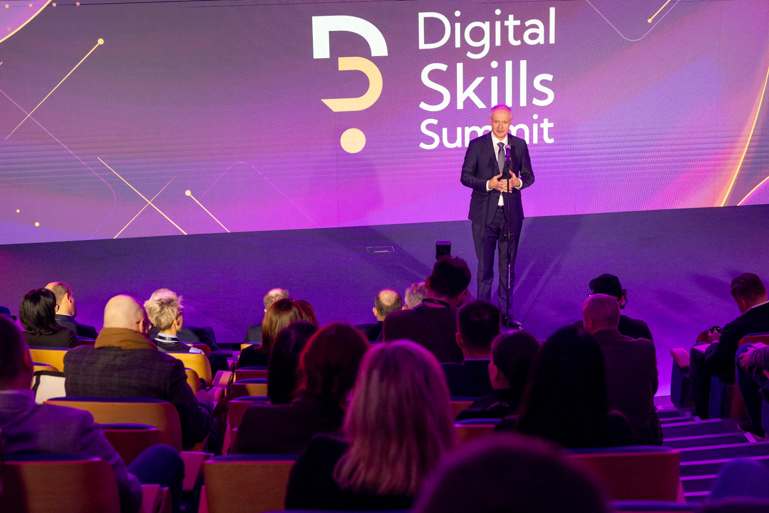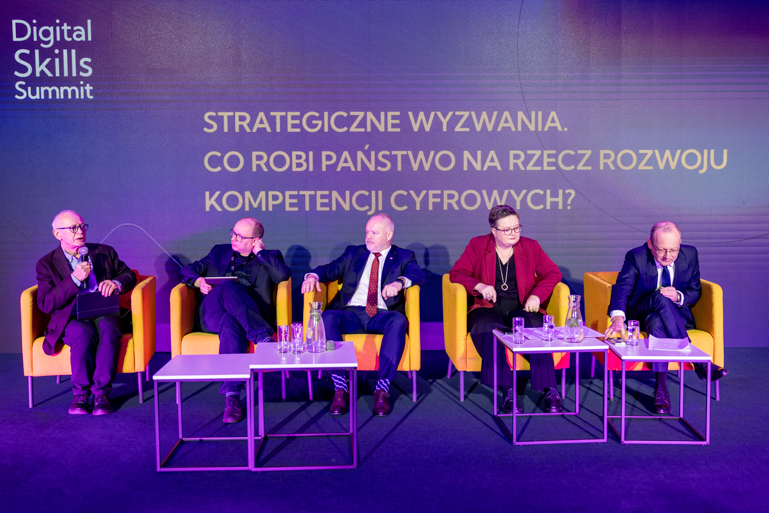Start - Aktualności - Silesian University of Technology in the centre of discussion on digital competences

Silesian University of Technology in the centre of discussion on digital competences
The first edition of the Digital Skills Summit took place at the Silesian University of Technology in Gliwice. The event was organized by the Ministry of Digital Affairs in cooperation with NASK and Silesian University of Technology. Among the guests and speakers of the conference were Deputy Prime Minister and Minister of Digital Affairs Krzysztof Gawkowski and representatives of the government, business, and science.
Digital competences of Polish citizens and digital education in Poland were discussed during the first edition of the Digital Skills Summit.
The event was opened by Deputy Prime Minister and Minister of Digital Affairs Krzysztof Gawkowski.
“Digital competences are both a future and a challenge that requires our shared responsibility. They are the future, because within the framework of government programs their development is a priority – we want them to grow dynamically and cover an increasing part of the society” – said the Deputy Prime Minister.
"It is particularly important to raise the level of competence among the oldest age groups, where currently only 17% of people have basic digital skills. But for the whole society to rise to a higher level of digital awareness, coordinated action and a clear vision of development are needed,” Gawkowski added.

In response to these data, the actions in question have already been announced. Both the Minister of National Education Katarzyna Lubnauer and the Deputy Minister of Science and Higher Education Prof. Marek Gzik talked about them.
“As early as next year, all primary and secondary schools will receive health education, during which children and young people will learn about digital hygiene and how to avoid the risks of using social media, but also how not to give in to addiction to social media and digital tools,” said Lubnauer.
In turn, as part of civic education in secondary schools, knowledge on cybersecurity and the fight against disinformation will be transferred.
“In accordance with the government’s policy on transformation, programs will be implemented that will equip schools with AI, STEM or remote education labs,” Lubnauer said.
In the field of digital education, the Ministry of Science and Higher Education sees many challenges.

“In a period of profound economic transformation, the development of digital competences is crucial. If we think about competing with the most developed countries of this world, we must focus on the development of young people and graduates of universities, so that they can respond with their skills to the needs of the labour market” – said Prof. Marek Gzik, Secretary of State at the Ministry of Science and Higher Education.

Universities are already responding to these needs.
The Silesian University of Technology is at the centre of the discussion on digital competences for good reason. Silesia is in the phase of energy transformation, and this will not take place without digital competences. This is followed by the new Silesian industry and the need to make people aware of various possibilities, but also threats – said the Rector of the Silesian University of Technology, Prof. Dr Hab. Eng. Marek Pawełczyk.
The Rector noted that for the first time in history we are observing a situation when the younger generation teaches the elderly. This creates additional challenges, among others, related to searching for new forms of knowledge transfer and transforming the professions of the past into professions of the future based on modern technologies. It was also one of the topics discussed during the debates that accompanied the conference.

In total, three panels were held during the conference, which also focused on automation and robotization of industry and the skills of leaders who will bring digital change to companies and communities.
- “During this discussion it was stated that we have a demand for human resources education for the development of artificial intelligence, which is also associated with a lot of problems. There is also data that in Poland we perform well when it comes to the level of expert knowledge, but worse in the field of education of citizens. There is a lot of work to do” -, said Dr Eng. Jarosław Homa, Deputy Director of the Centre for Cybersecurity of the Silesian University of Technology.
The message from the conference was consistent, every citizen with the help of the state should expand his or her digital skills.
“Digital competence cannot be built by central decisions. Government departments are not enough. At the end of digital competence, there is each of us who needs to find the energy and willingness to build such competences. The state as an institution can only provide us with tools, opportunities and possibly time.” - added Dr Eng. Radosław Nielek, Director of NASK.
The main objective of the Digital Skills Summit conference was to support digital transformation in Poland, as well as to promote cross-sectoral and inter-institutional cooperation to improve the digital competences of society in the context of the development of a modern and competitive economy.
fot. Maciej Mutwil









